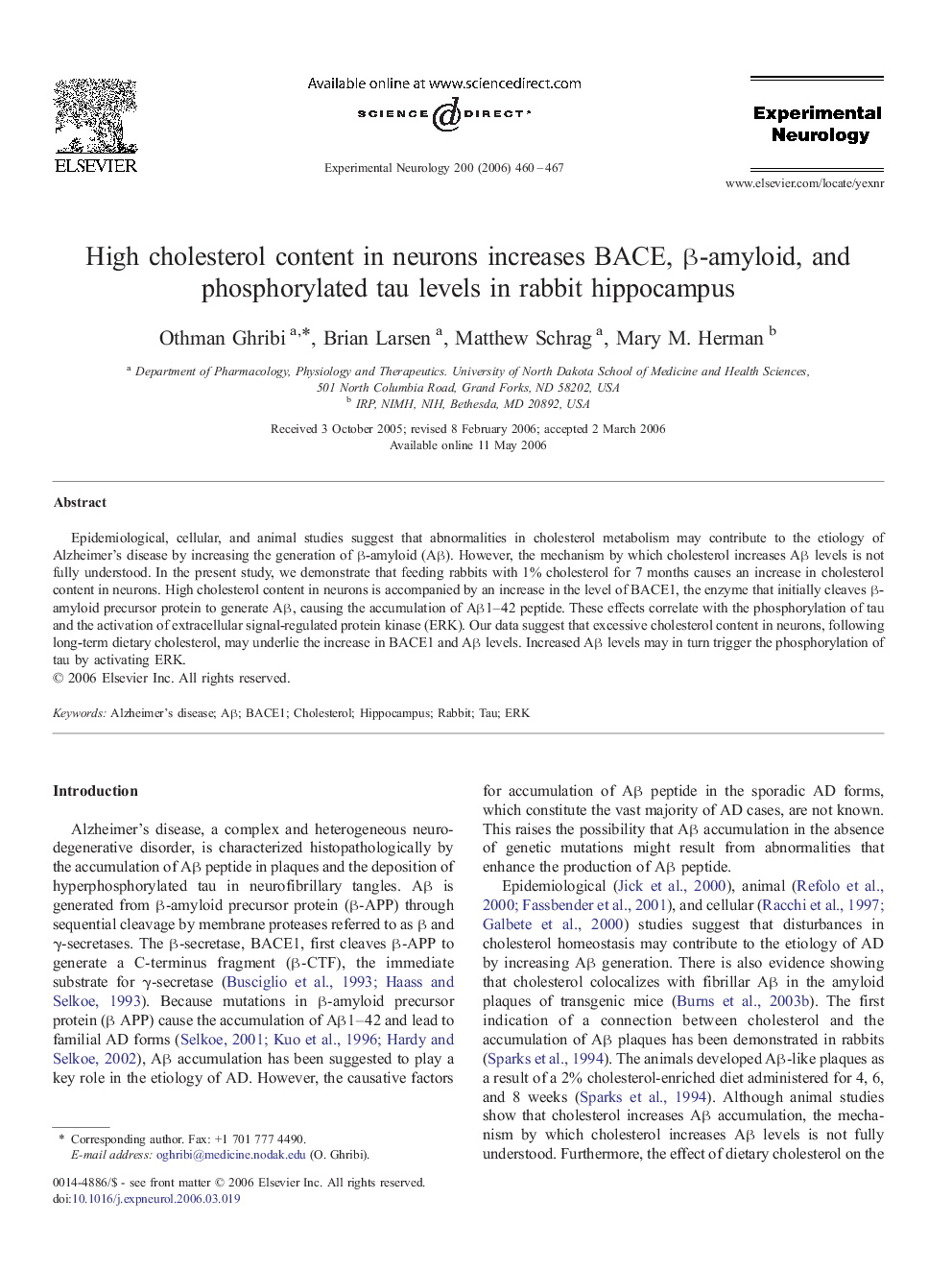| Article ID | Journal | Published Year | Pages | File Type |
|---|---|---|---|---|
| 3057081 | Experimental Neurology | 2006 | 8 Pages |
Epidemiological, cellular, and animal studies suggest that abnormalities in cholesterol metabolism may contribute to the etiology of Alzheimer's disease by increasing the generation of β-amyloid (Aβ). However, the mechanism by which cholesterol increases Aβ levels is not fully understood. In the present study, we demonstrate that feeding rabbits with 1% cholesterol for 7 months causes an increase in cholesterol content in neurons. High cholesterol content in neurons is accompanied by an increase in the level of BACE1, the enzyme that initially cleaves β-amyloid precursor protein to generate Aβ, causing the accumulation of Aβ1–42 peptide. These effects correlate with the phosphorylation of tau and the activation of extracellular signal-regulated protein kinase (ERK). Our data suggest that excessive cholesterol content in neurons, following long-term dietary cholesterol, may underlie the increase in BACE1 and Aβ levels. Increased Aβ levels may in turn trigger the phosphorylation of tau by activating ERK.
